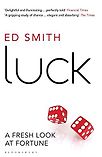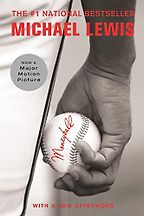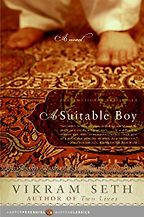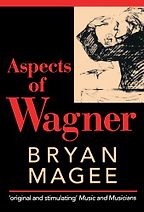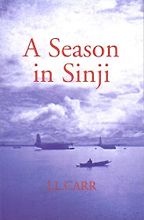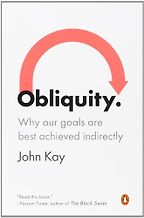I looked up “luck” in the dictionary and it read: “Success or failure apparently brought by chance.” What drew you to study it?
I was a professional cricketer for 13 years. When you are a professional sportsman you inevitably want to control as much as you can. To some extent, the idea of luck is taboo – we don’t like to believe it exists that much, and if it does intervene a lot in our sport we tend to gloss over it afterwards. If you’d asked me when I was 17 or 18 what I thought about luck, I would have said it was a recognition of weakness or an excuse for failure. I would have said that if you’re good enough and work hard enough you’ll get what you deserve.
I think I really learnt the hard way about luck. The really big things that happened to me in my career were often determined by chance. When I played for England, a crucial umpiring decision went against me. It was technically an incorrect decision and nowadays you would challenge it with the decision review system. But that turned out to be the last time I played for England.
Later on, when I was captaining [my county team] Middlesex at Lord’s, we were on a great winning streak. During a match that we looked like we were going to win, I twisted my ankle, innocuously, I thought. But it transpired that I had broken my ankle and that brought about the end of my professional cricket career.
It sounds like I just had an awful lot of bad luck. In actual fact, they were just the prompts that made me think about luck in a much broader sense. I realised that if you define luck as that which is beyond your control, which is implicit in the definition you used, I have been massively lucky in a much bigger sense too. For example, the luck of where I was educated, where I first learned how to play cricket. You’re 20 times more likely to go on and play for England if you go to private school rather than state school.
So I suppose I started thinking about luck in a much broader sense, in terms of the social luck of where you grow up and your genetic good fortune. We tend to gloss over genetic good fortune in sport because it’s all supposed to be about effort but I know from having been in a dressing room with all range of sportsmen that the luck of genes is a massive influence on sport.
“I started thinking about luck in a much broader sense, in terms of the social luck of where you grow up and your genetic good fortune.”
My book Luck started off being about circumstances – basically the things that happened that made a huge difference to my life – and then it became something much broader than that.
When we talk about luck, we are talking about a very Western, secular, individualistic idea, aren’t we? Other cultures and religions dismiss the idea of luck, and believe that what happens to you is destiny.
I do think, to some extent, the idea of luck or fortune does exist in a similar space as God, although that sounds rather sacrilegious. But obviously, religions that are very God-centred don’t embrace the concept of luck. The idea of chance influencing someone’s life becomes much stronger after the Renaissance in the West, as you would expect.
My sister, who is a Catholic, read the book and said: “So you believe in luck. Well, I believe in God and it has the same effect in terms of making you humble and realising you’re not as in control as you thought you were, and to make you thankful for the things that worked out that you maybe didn’t play any role in.” So that’s an interesting reading of the book.
One of the people I interviewed was a war pilot who fought in the Battle of Britain over Kent. We spoke for a few hours about the luck he had, and how he was nearly killed when his parachute failed when he ejected over Kent. At the very end of the conversation, having talked about luck for a few hours, he said: “Of course, I don’t call it luck, I call them blessings because I am a Christian.” So I think you’re right to some extent, that those concepts are blurred.
When did people start talking and writing about luck and chance?
We probably have to start getting into definitions at this point. One of the problems about talking about luck, and the cause of many arguments I have had, is when you start talking at cross-purposes. I’d be talking about luck, while they’ll be talking about chance or probability. We use luck and chance sometimes interchangeably, but in many senses they are very different words. If I said it was chance that I bumped into a friend yesterday, that could almost be the same as saying that it was pure luck.
There is a little bit of optimism built into luck, as you have to specify bad luck – if you just said “luck” people would presume it was a good thing. Chance is a little more even. But the idea that something was uncaused or unplanned would be the same with luck or chance. But to a card player, to a gambler, luck and chance are exactly the opposite. You can’t use “an even luck” but of course you can use “an even chance”, as it’s probabilistic. Chance can be calculated with a mathematical construct. Luck is literally the opposite – it’s the stuff that you can’t attach a number to.
“Chance can be calculated with a mathematical construct. Luck is literally the opposite – it’s the stuff that you can’t attach a number to.”
So they are different words. And having introduced that idea, the idea of luck as relating to fortune is a very classical idea that runs through very strongly in the Greco-Roman world. The idea of chance, the idea of probability, is a post-Renaissance idea that started with gamblers and theories of games, and then grows into a discussion about chance and probability and ultimately of risk.
But the question of how much of our life is determined by a force, sometimes called fortune or destiny or luck, is two-and-a-half-thousand years old in the West – back to the times of [the goddess] Tyche in Greece or Fortuna in Rome. Understanding the relationship between our own agency and that which is beyond our control is thousands of years old.
Are good luck and bad luck self-perpetuating? Does one piece of good luck lead to more good luck?
That’s right, I think. One of the mistakes we make about understanding luck is that we tend to view it like a weighing mechanism, with good luck on one side and bad luck on the other. In actual fact, we should imagine life more like a stream coming down a mountain. Luck is like the boulder in the stream that diverts it and makes it a different stream by the time the next bit of good or bad luck happens.
There is a big sociological literature about cumulative advantage. One very famous example of this is the “January effect”, which is explored in Malcolm Gladwell’s book Outliers. He shows that kids who are old for their school year tend to be promoted in their sports teams when they are young and are singled out as being talented and are given more attention and coaching. This makes them better at sport.
They started out just getting attention because they were bigger and more physically developed because they were old for their year. That then starts to become a very real advantage, because once they are singled out and given extra coaching they do become better. That is called a cumulative advantage, where an early stroke of good luck – being older and therefore more physically developed than your classmates – self-perpetuates and you become more and more lucky.
It’s a fascinating subject and we could sit here and talk about it all day. But there are no real clear answers or conclusions, are there?
No, there aren’t really. One of the things I try to get away from in my book is the idea of pulling a rabbit out of the hat and saying “this is the solution”. It’s more of an investigation into the meaning of luck. It’s an interrogation of the subject rather than a QED-type approach.
Moneyball is the story of the Oakland Athletics baseball team and how they successfully used rigorous and innovative statistical analysis to improve their chances against wealthier clubs. Why did you choose it?
I discovered it when I was in the US and was a visiting writer at Harvard in 2003. I think I was one of the only English writers to talk about this book when I came back to Britain at the end of that year. I wrote a review of it and I tried to use it practically when I was captain of Middlesex – we used some Moneyball-like statistical methods to inform our selection of our Twenty20 teams. So my interest in it started off as intellectual, but then became practical.
Of course, the idea of using statistics to gain an edge is anti-luck if you like; it’s about using numbers to gain an advantage. But it’s more complicated than that I think. Moneyball is a superb book and credit should go to Michael Lewis for turning a book about baseball statistics into a bestseller and for attracting readers who do not like or have any interest in baseball. He makes the strongest possible case for using thinking to help win more games and using statistics to work out how a baseball match is won. And it’s not won in the way that we all think it’s won – by just scoring runs in the obvious sense.
He breaks down how those runs are scored, who it is who is scoring, in much the same way as a financial analyst would do it. Since then, every baseball team, including the very richest, have tried to adopt this method. For some it has worked, for others it hasn’t.
What I take from the book now is that we would be crazy not to use the latest mathematical tools to help understand how games are won and lost, but I think the book takes to an extreme the idea that human judgements are absolutely obsolete in the face of scientific data. That idea has been shown to be a little dated. It’s almost as if Moneyball was the high watermark of enlightenment self-confidence – the idea that the numbers will tell the truth and human beings, with their gut instincts and judgements, will inevitably make mistakes.
“We would be crazy not to use the latest mathematical tools to help understand how games are won and lost.”
A lot of baseball teams haven’t benefited from the Moneyball methods. The Oakland Athletics team did, but that was assisted by their business model. I think success in sport will always be a mixture of statistical based analysis and human judgement. One without the other will never be enough.
I’m glad you said that, as I found the whole Moneyball thesis, that human judgement and instinct in sport could be replaced with statistical modelling, slightly depressing.
I think what Michael Lewis did brilliantly was expose the clubbability of professional sport. There is a tendency to be very suspicious of new thinking and I experienced this too. So he’s saying: “Hang on a minute, these guys are just recycling conventional wisdom and are closing themselves off to new and better ways of doing this.” I completely agree with him on that.
But what I wouldn’t agree with him about is the idea that a computer can make all the right decisions about selecting players. That does not fit with my experience nor indeed of the evidence of today’s sport. So I don’t think that statistical modelling, whether in sport or financial risk, will ever supplant a shrewd combination of modelling and human judgement.
Your next choice is A Suitable Boy. You’re friends with Vikram Seth, aren’t you? How did that come about?
My father, who’s a novelist and was a teacher for many years, taught Vikram when he came to England to study for his A-levels in the 1970s. I can remember my dad telling me later on, in the late 1980s, that one of his ex-pupils was going to be the greatest writer of his generation. When I was in my teens Vikram came to talk at his old school, where I was studying, and he stayed with us. That was when I got to know him and when my father got to know him again.
Then, independently, we became friends in the adult world. I bumped into him when I was playing cricket in Australia and he was giving a talk. We now live around the corner from each other in west London. So he’s a very good friend. He gave me a hilarious piece of advice once: “The best bit of advice for a young writer is don’t listen to any advice.”
Tell us more about the book.
What’s interesting about the book from my point of view is that once you get to know the characters, which does take a while, it becomes a book that you just can’t wait to get back to. It’s funny to think that a 1,400-page Victorian-type novel is something you can’t wait to get back to, but that’s exactly my experience of reading it. It takes a while to get a sense of who everyone is and to feel comfortable with the various characters and families. It’s a big cast and it’s like going up a hill to get to know them, and then there is this enormous downhill, this freewheeling period, when you’re enjoying yourself. It’s a fantastically entertaining book.
It’s about four families isn’t it, and a mother’s search for a suitable boy to marry her daughter?
Yes. It’s set around the time of independence. Funnily enough I interviewed Vikram in India at a cricket match, and cricket is one small thread in the book. Some of the crucial scenes happen at cricket matches.
The daughter’s three suitors are all very different. One is a businessman and is more practical and wants to do his own thing in the world. One is a poet who’s shy and intelligent and ironic. And the other is a cricket player and was the daughter’s first love. So you get three different types of men competing for the girl’s hand in marriage and the story revolves around this with the backdrop of events in the aftermath of Indian independence.
So getting to know a writer who you admire very much is a stroke of luck, especially when you’re starting on your own career. I hadn’t written my first book then. I could have chosen any of Vikram’s books because I love all of them, but A Suitable Boy you just live with for the rest of your life because you get to know the characters so well.
Many books have been written on Wagner. Why did you pick this?
The Wagner question is very interesting. It used to be said – although I’m sure it’s not true – that more books have been written about Wagner than about Jesus. Grappling with Wagner’s success and how he had such an absolute hold over his fans is quite odd. I’m a Wagnerian, not nearly as crazy as some Wagnerians, but I have travelled far and wide to see Wagner’s operas and I probably know more about Wagner than I do about every other composer put together.
What Brian Magee has done brilliantly is to write a book that just explains what is going on – how do we make sense of this phenomenal person who has influenced so many intellectuals, so many creative talents and even history to some degree? He does it in a way that is both chatty and deep. And it’s all the better for not being too detailed. It really taught me a lesson very early on, as I first read it when I was studying Wagner in my final year at Cambridge. It taught me that a very short book that is a distillation of many years thought can be much more powerful than something that is much more extensive.
My whole introduction to Wagner was through a massive stroke of luck. I didn’t know what I was going to study in my final year at Cambridge because you had to specialise in something. A friend of mine said: “Look, you’ve got to do this Wagner course. It’s something you’ve just got to do.” He was very insistent, so I did. I can remember the first lecture by Professor Tim Blanning – who would later become a friend of mine – who closed the blinds, turned off the lights and played Lohengrin. I can remember thinking: “This has got to be a good way to spend my last year studying history.”
There was the luck of a friend’s recommendation and the luck of a brilliant teacher and the good fortune of being in the right room at the right time and listening to this extraordinary music.
What does Wagner mean to you? He’s certainly influenced a great number of writers.
Wagner seems to reach parts of your personality that other music doesn’t. Of course, some people challenge whether that’s a pretence, or that it’s an intellectual trick that we imagine ourselves to be touched, which of course was Nietzsche’s criticism of Wagner. He was a devotee of Wagner before he turned against him and became very critical. I probably listen now to more Schubert and Bach, but I still say that Wagner does something nobody else does. I can’t really explain why that is.
“Wagner seems to reach parts of your personality that other music doesn’t.”
The personal story is also interesting. He had many weaknesses and flaws, and unforgivable opinions at times, but Wagner’s determination to forge his own path and his complete refusal to follow existing tracks for a creative talent is very inspiring. So whatever you think about him personally and morally, he makes the rules and that’s very inspiring for anyone, and might be why so many writers and creative talents respond to him.
Moving on to your next book now. JL Carr is probably best known for his book A Month in the Country. Why have you gone for the lesser-known work A Season in Sinji?
I think the interesting thing about sport in literature is that nearly all great books about sport aren’t really about sport. This applies to Moneyball – it’s ostensibly about baseball but it’s not really about baseball, it’s about scientific method. It’s the same with A Season in Sinji – it’s a cricket novel, but it’s not about cricket. It’s about life.
The form of life it explores is a cricketing life to some degree, or a group of people fighting a war who are seeking solace, or an escape, by playing cricket. So that’s a lesson in itself for a writer. If you want to write really well about sport, then you need to be doing more than just writing about sport.
“I think the interesting thing about sport in literature is that nearly all great books about sport aren’t really about sport.”
JL Carr knew a huge amount about cricket. Often sports writing in novels strikes the wrong note – it’s not quite convincing and is sort of shoehorned in there for a bit of colour. But in this book it’s excellent.
Can you tell us a little about the book’s story?
It’s set on a British air force base in West Africa during World War II. It’s hell on earth – it’s terribly hot, the food’s awful, they get ill all the time. They’re bored rigid, and Tom Flanders, who is the central character, sets up a cricket team to keep himself and everyone around him alive and engaged. His biggest worry is how he’s going to retain control of this team and make sure that the toffs – the officer class – won’t co-opt it and wrestle it away from him.
It ends up being a struggle between Flanders and his arch enemy the officer Turton, who isn’t much of a cricketer and is generally a poor human being. They get locked into this struggle for this cricket team. So it’s a novel about class, it’s a novel about cricket and it’s a novel about war. It’s also a novel about Englishness.
It’s also a novel about a group of people who have the bad luck of being thrown together in this inhospitable part of Africa and are trying to cope with events that are completely beyond their control.
That’s right. The backdrop is how people deal with the underlying uncertainty and fear that goes with warfare. There’s the randomness of whether your number will come up and you will have to fly an air reconnaissance mission. This actually happens at the end of the novel and the mood of those that are picked changes from being bored, restless and ill-tempered to being suddenly focused, fearful and engaged.
One of the interesting things is that the pilot chosen on that mission is particularly bad. So you have not only been drawn to do a reconnaissance mission, but you have also been drawn with the worst pilot. So it’s a double stroke of bad luck at the end.
Anyone who experienced World War II must have been constantly aware of the power of good luck – where you got sent, whether you survived it, and the brutal probabilities of life as a soldier.
Your final book, Obliquity, is by the renowned economics writer John Kay. Tell us more about it.
I’ll tell about how I came to John Kay’s work. I actually read Nassim Taleb’s book Fooled by Randomness first, which is a different book but with some connections to Obliquity. Then I read John Kay’s review of it in the Financial Times, which was very interesting, and I began to follow John Kay’s work. What Kay writes about business and finance often applies to other spheres as well. Like Taleb’s work, it has a universal quality. You can substitute business for sport and the model holds up very well. I’ve certainly found there are often parallels between what John Kay writes about in the financial world and what I’ve experienced in the world of professional sport.
The central argument in Obliquity is a brilliant insight that many of the greatest achievements of the business world come about not exactly by accident, but the outcomes evolved from people who weren’t thinking about outcomes. They’re actually trying to do something else, and the fantastic outcome evolved by obliquity. In other words, things are best achieved quite often by not focusing on them.
It’s wonderfully counterintuitive, particularly in an era of ultra-professionalism, of constant planning and strategising. Kay says that if you try to expose yourself to different things, and are open to different experiences, then many of your best ideas will evolve by obliquity. This is absolutely the case. The classic example being in business – don’t try for profits, try to have a good business. If you have a good business, the profits will happen.
But it’s much broader than that. The best way to seek happiness is not to try to be happy, but to absorb yourself in an activity which is fulfilling. Happiness will then follow. It’s quite a profound insight, which he explores deeply, both psychologically and in life.
On the corporate side, Kay uses the example of the British chemical company Imperial Chemical Industries, which for most of its existence focused on being excellent at chemistry and was very successful financially. Then in the early 1990s it changed its mission to maximising shareholder value, and collapsed within 10 years.
Yes, that’s right. It’s a lovely story.
I suppose, on a human level, Kay is saying that if you are good at art but love money, for example, don’t go directly for the money by being an investment banker as you will probably fail, but focus and work hard as an artist and you might well find yourself becoming rich that way.
The money may follow. One of the things you must always allow for is the fact that even if you do the right things there are no guarantees. The correct analogy is: You definitely don’t want to be a second tier banker with reasonably good financial rewards but no fulfilment, when you could be the best artist you could be with a shot – probably no more than a shot – of getting big returns financially.
It’s actually a version of “control the controllables”. If you do what you enjoy and do what you’re good at, as long as you can pay the bills no one can interfere with your fulfilment and you might also be giving yourself a chance of serious success.
You just need a bit of luck
.
Yes, some luck. One of the insights that Kay explores is the metaphor of evolution. In life, it’s impossible to say what percentage of success is luck and what percentage is design or agency. If you look how evolution has developed, you’ll see that it’s the interplay of chance and adaptation that leads to progress. It’s almost as though the influence of chance or luck creates a new thing. Going back to the metaphor of the stream and the boulder, when chance enters the equation you create a new thing. It’s not a mixture, it’s a compound. Talent and effort plus chance create a compound, an entirely new thing.
“In life, it’s impossible to say what percentage of success is luck and what percentage is design or agency.”
I think that the implication of Kay’s work is that you have to be open. Openness is as important as effort, strategy or planning. You have to be open to chance. You have to be open to good things happening to you. That’s something that is often undervalued in the corporate and sporting worlds. They want to wrap everything up. They want to feel that it can’t go wrong because they have done all the planning and the strategy. But it isn’t like that. Success isn’t like that. You have to be open to the influence of chance.
March 27, 2012. Updated: February 4, 2026
Five Books aims to keep its book recommendations and interviews up to date. If you are the interviewee and would like to update your choice of books (or even just what you say about them) please email us at [email protected]
Five Books interviews are expensive to produce. If you've enjoyed this interview, please support us by donating a small amount.

